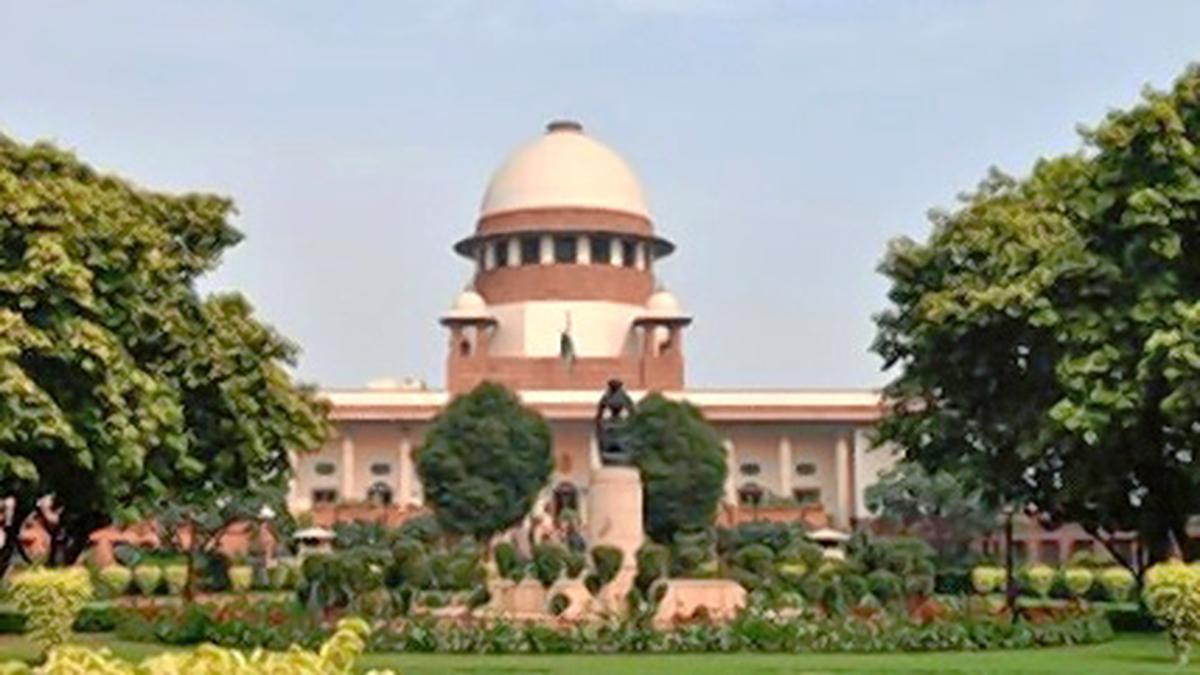 |
|
The Supreme Court of India has raised serious concerns regarding the participation of convicted individuals in the legislative process. The court's questioning of how convicted persons can return to Parliament and State Legislatures highlights a fundamental conflict of interest: individuals found guilty of violating the very laws they are tasked with upholding. This debate, sparked by petitions including one filed by advocate Ashwini Kumar Upadhyay, calls for a critical examination of the current system and its implications for the integrity of Indian democracy. The core issue centers on whether the existing disqualification provisions under Section 8 of the Representation of the People Act of 1951 are sufficient to address the pervasive problem of criminalization of politics in India. This section currently mandates disqualification for the duration of a prison sentence plus six years, a period deemed insufficient by many to prevent convicted individuals from returning to power, potentially leveraging their influence and connections to evade accountability.
The Indian government, in an affidavit submitted to the Supreme Court, has previously rejected the proposal for a lifetime ban on convicted individuals contesting elections or holding positions within political parties. Their argument rests on the premise that MPs and MLAs are not bound by specific service conditions, but rather by their oaths to serve citizens and the nation. They assert that principles of propriety, good conscience, and national interest should suffice to guide the conduct of elected officials. This stance, however, has been met with significant criticism, with many arguing that the existing system allows for a continuous cycle of criminal activity intertwined with political power. The government's reliance on a 2019 Constitution Bench decision in the Public Interest Foundation case, which acknowledged the problem of criminalization but refrained from imposing legislative solutions, further underscores the complexity and sensitivity of this issue. The government’s position, therefore, appears to prioritize a hands-off approach, placing trust in the moral compass of individuals with criminal records, a proposition that many find insufficient to safeguard the integrity of the democratic process.
The amicus curiae, senior advocate Vijay Hansaria, along with advocate Sneha Kalita, presented alarming statistics to the court, revealing that approximately 5,000 criminal cases against MPs and MLAs remain pending despite previous court directions for expedited disposal. The sheer number of pending cases highlights a systemic failure to ensure timely and efficient justice, allowing individuals facing serious criminal charges to maintain their political positions and influence for extended periods. Mr. Hansaria's statement regarding the high percentage of sitting Lok Sabha members with criminal cases further underscores the gravity of the situation, painting a picture of a political system riddled with criminal activity and a lack of accountability. Justice Manmohan's concern about convicted persons retaining power through proxies amplifies the worry that even formal disqualification measures might prove ineffective in addressing the deeply rooted problem. The court's decision to refer the challenges relating to the expeditious disposal of criminal cases against MPs and MLAs to the Chief Justice of India for allocation to an appropriate Bench suggests that the court recognizes the need for comprehensive and systemic reform.
The Supreme Court's decision to independently examine the validity of provisions within the Representation of the People Act, including Section 8, signals a willingness to directly address the core issue of disqualification. By requesting responses from the Centre and the Election Commission of India, the court has set the stage for a crucial review of the existing legal framework. The court's approach seems to reflect a careful balancing act: acknowledging the potential for legislative overreach while simultaneously underscoring the urgent need for effective measures to address the alarming level of criminalization within the political sphere. The court's emphasis on avoiding a “half-baked exercise” in examining decriminalisation of politics signifies its commitment to a thorough and impactful solution, one that avoids merely patching existing problems without addressing their fundamental causes. The ultimate outcome of the Supreme Court's review will have significant ramifications for the future of Indian politics and its commitment to upholding the principles of accountability and integrity in governance. The court's actions highlight the ongoing struggle to balance the principles of democratic participation with the imperative to maintain public trust in the integrity of its elected officials.
The case highlights a deep-seated issue within the Indian political system: the pervasive presence of individuals with criminal records in positions of power. The Supreme Court's intervention underscores the urgency of addressing this issue, not only through legal reforms, but also through systemic changes that foster greater accountability and transparency. The court's decision to refer the matter of speedy disposal of cases to a higher bench demonstrates its commitment to comprehensive action, suggesting a multi-pronged strategy that involves both judicial oversight and legislative reform. The future trajectory of this case, and its potential implications for electoral laws and political culture in India, will be closely watched by citizens and legal experts alike. The ongoing debate emphasizes the delicate balance between upholding the right to participate in the democratic process and safeguarding the integrity of the political system itself. The Supreme Court’s exploration of this complex issue is crucial for shaping the future of Indian democracy and ensuring that the principles of justice and accountability are upheld.
Source: How can convicted persons return to make laws, Supreme Court asks
